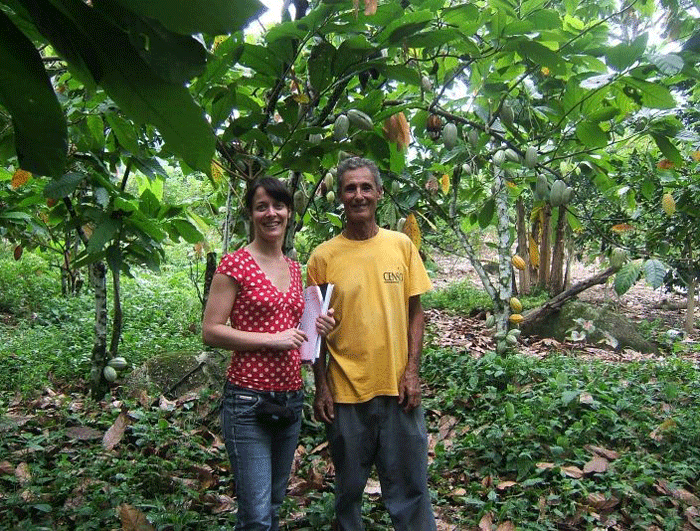I Want Your Job: Ethical Trading Manager
'It's wonderful to see changes'

Cristina Talens, 34, is an ethical trading manager at Bettys and Taylors of Harrogate, a Yorkshire-based family business which sells teas and coffees, and runs several tea rooms.
What do you actually do?
I work with coffee and tea growers, and our team of buyers, to make sure our products are sourced ethically. I look at what kind of problems our suppliers face, and try to improve labour conditions. I interview growers one-to-one, on a confidential basis, about things like working hours, minimum working age, wages, childcare, safety and hygiene. It's called a "social audit". Then I go through my findings with the farmer, and we work out an action plan. I try to build long-term relationships with growers, local government and non-governmental organisations (NGOs).
What's your working schedule like?
Six to eight weeks a year, I'm out in the field. I've just come back from visiting coffee growers in Nicaragua, and cocoa growers in Venezuela. While I was in Nicaragua, I'd get up at the crack of dawn to visit a childcare centre we'd helped to set up for the children of migrant workers.
I also talked to families, teachers, and local representatives from the ministries of education and health, before returning to my hotel late in the evening to go through my audit. The rest of the year, I'm based in Harrogate, where I work from 8am to 5.30pm, looking through reports, talking to suppliers, and supporting our company's coffee-buying team with their audits.
What do you love about it?
The greatest thing about this job is seeing that change is possible. When we've picked up on a set of labour issues affecting growers, and we go back a year later to find amazing changes, it feels wonderful. You can see a real improvement to the way people live and work. And there's a sense of trust that comes from building a close relationship with people at the other end of the supply chain.
What's not so great about it?
The jet lag is a killer. Your body clock goes haywire when you're out in the field, but because you're only there for a certain period, you have to just get on with it and keep to a tight timetable. I have a seven-year-old daughter, so I need to get home on schedule.
What skills do you need to do the job well?
Foreign language skills are very useful. You should be calm and practical, and you need cultural awareness. It helps if you've travelled, and you should be prepared to research the country and industry you're going to audit.
Before you start, there's a two-day social auditing course, which takes you through international labour laws, plus two witnessed audits on the ground with a trained social auditor. Every two years, you have to retrain.
What advice would you give someone with their eye on your job?
Get some experience with an NGO. Go and volunteer, and see how they work – it's a very different world to business. Learn about labour issues and human rights, and get some language lessons. Once you've done that, try to work for a company, so you understand how businesses work. Then you could approach the Ethical Trading Initiative. Social auditing is still a new, small field, but it's expanding fast, because more companies are becoming aware of what happens down their supply chain.
What's the salary and career path like?
If you speak a language and have experience working with an NGO, you might start on about £18,000-£20,000 a year. Your salary rises as you get more experienced. Because it's a brand new field, there isn't a defined career path, but you could think about becoming a consultant or managing a team of buyers.
www.bettysandtaylors.co.uk . For more information on careers in ethical trading, visit www.ethicaltrade.org; www.ethicalteapartnership.org; or www.fairtrade.org.uk.
Join our commenting forum
Join thought-provoking conversations, follow other Independent readers and see their replies
Comments